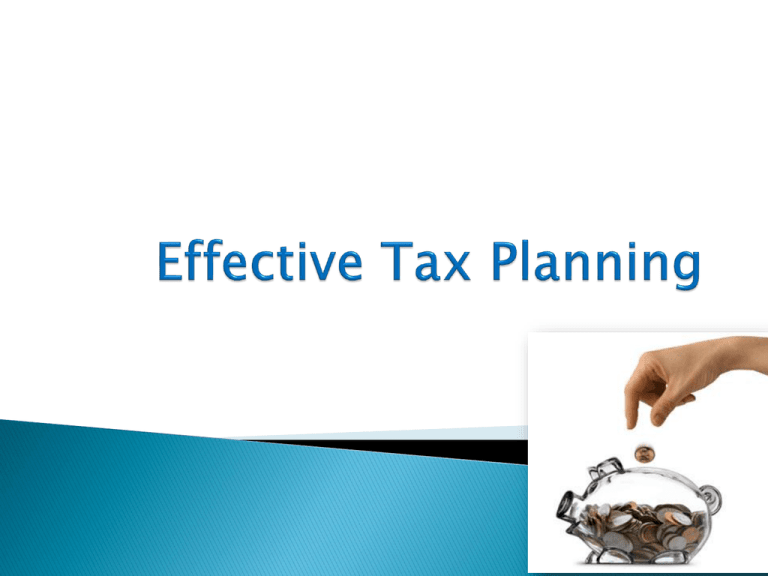User Intent
Users searching for “What is tax planning effective?” likely want to understand how tax planning can be implemented effectively to minimize liabilities and maximize savings. They may be business owners, profession
als, or individuals looking to optimize their financial strategies legally and ethically.
Introduction
Tax planning is an essential financial strategy that helps individuals and businesses reduce their tax liabilities while remaining compliant with legal regulations. Effective tax planning ensures that taxpayers optimize deductions, credits, and exemptions in a way that maximizes their financial benefits. But what makes tax planning truly effective? In this article, we will break down the concept of tax planning, its applications, benefits, limitations, and provide a comparative analysis to help you make informed decisions.
Definition of Tax Planning
Tax planning is the strategic approach to managing finances in a way that legally reduces tax liabilities. It involves analyzing income, investments, and expenditures to ensure efficient tax savings while adhering to tax laws. There are different types of tax planning, including:
- Short-term tax planning – Strategies implemented within a fiscal year to gain immediate benefits.
- Long-term tax planning – A continuous approach to tax management for future financial benefits.
- Permissive tax planning – Utilizing legal provisions like deductions and exemptions.
- Purposive tax planning – Structuring business and financial activities to gain tax advantages.
To Visit: https://www.incometax.gov.in
Application of Effective Tax Planning
Implementing tax planning effectively requires strategic actions. Below are some key applications:
- Income Splitting – Distributing income among family members in lower tax brackets to reduce overall tax liability.
- Investing in Tax-Advantaged Accounts – Utilizing accounts like IRAs, 401(k)s, or Roth accounts that provide tax benefits.
- Capital Gains Planning – Timing the sale of assets to take advantage of lower capital gains tax rates.
- Maximizing Deductions and Credits – Claiming all eligible deductions such as business expenses, educational credits, and medical expenses.
- Utilizing Retirement Contributions – Making maximum contributions to retirement funds to reduce taxable income.
- Business Tax Strategies – Structuring business operations to benefit from tax deductions and credits.
- Estate Planning – Minimizing estate taxes through trusts, gifts, and legal exemptions.
- Charitable Contributions – Donating to qualified organizations to lower taxable income.
- Expense Optimization for Businesses – Claiming legitimate expenses to reduce taxable profits.
- Tax-Loss Harvesting – Offsetting capital gains by selling underperforming investments.
Benefits of Effective Tax Planning
- Lower Tax Liability – Reduces the overall tax burden legally.
- Increased Savings – Allows more funds to be allocated toward investments and expenses.
- Better Financial Management – Encourages disciplined financial planning.
- Compliance with Tax Laws – Ensures adherence to tax regulations, reducing risks of penalties.
- Enhanced Business Growth – Enables businesses to reinvest saved taxes for expansion.
- Retirement Security – Helps build a stable financial future with retirement accounts.
- Wealth Transfer Benefits – Assists in reducing estate taxes for future generations.
- Investment Growth – Provides opportunities to grow wealth through tax-advantaged investments.
- Cash Flow Optimization – Ensures better liquidity and financial stability.
- Reduction of Legal Risks – Keeps financial transactions within legal boundaries.
Limitations of Effective Tax Planning
- Complexity – Requires detailed understanding and continuous updates of tax laws.
- Professional Fees – Involves hiring tax advisors, which can be costly.
- Legal Risks – Misinterpretation of tax laws can lead to penalties.
- Limited Benefits for Low-Income Earners – Some strategies are more advantageous to higher-income groups.
- Dependency on Regulations – Changes in tax laws can affect existing strategies.
- Risk of Audit – Poorly planned tax strategies may attract tax authority scrutiny.
- Time-Consuming – Requires constant planning and monitoring.
- Potential Short-Term Losses – Certain strategies may need initial investments.
- Market Risks – Some tax-saving investments may be subject to market fluctuations.
- Uncertain Future Benefits – Tax laws may change, impacting long-term plans.
Comparative Table: Effective vs. Ineffective Tax Planning
| Factor | Effective Tax Planning | Ineffective Tax Planning |
|---|---|---|
| Legality | Fully legal strategies | May involve illegal tax evasion |
| Financial Benefits | Maximized tax savings | Missed opportunities for savings |
| Complexity | Requires knowledge & expertise | Often unstructured & uninformed |
| Risk Factor | Low risk with proper planning | High risk of penalties or audits |
| Business Growth | Supports expansion and reinvestment | Can lead to financial strain |
| Long-Term Impact | Ensures future financial stability | Short-sighted approach |
| Flexibility | Adaptable to changing tax laws | Rigid, may not adapt to law changes |
| Investment Potential | Encourages tax-advantaged investments | Ignores investment opportunities |
Conclusion
Effective tax planning is a crucial component of financial success for both individuals and businesses. By strategically minimizing tax liabilities through legal means, individuals can save more, invest better, and secure their financial future. However, tax planning requires continuous learning, professional guidance, and adherence to ever-changing regulations. While it has numerous benefits, it also comes with complexities and risks if not executed correctly. By implementing a well-structured tax strategy, taxpayers can legally optimize their financial outcomes and gain long-term stability.
FAQs
1. What is the primary goal of tax planning?
The main objective of tax planning is to legally reduce tax liabilities while maximizing financial benefits.
2. Is tax planning legal?
Yes, tax planning is legal as long as it follows the tax laws and does not involve tax evasion.
3. How can small businesses benefit from tax planning?
Small businesses can minimize tax liabilities by utilizing deductions, structuring expenses, and taking advantage of tax credits.
4. Can tax planning reduce personal income tax?
Yes, through strategies like income splitting, retirement contributions, and deductions, individuals can lower their personal tax burden.
5. What happens if I fail to plan my taxes?
Without proper tax planning, you may pay higher taxes, miss out on deductions, and face potential legal penalties.
6. How often should I update my tax planning strategy?
It is recommended to review and adjust tax strategies annually or whenever there are significant changes in income, expenses, or tax laws.
7. Do I need a tax professional for effective tax planning?
While some strategies can be implemented independently, consulting a tax expert ensures compliance and maximized savings.


